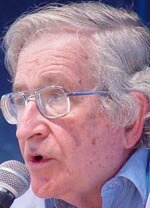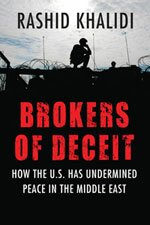The “Land of Israel” is barely mentioned in the Old Testament: the more common expression is the Land of Canaan. When it is mentioned, it does not include Jerusalem, Hebron, or Bethlehem. Biblical “Israel” is only northern Israel (Samaria) and there never was a united kingdom including both ancient Judea and Samaria.
History
[W]e were saddened to hear that you have been awarded the 2013 Israeli Wolf Prize for Architecture, not because you are not deserving of such awards, but that it is being offered to you by the Israeli state, in a very cynical move that would give them the respectability that is not deserved. It is ironic that the award is for architecture, since the practice of architecture in Israel defies international norms and codes of ethics and demeans the humanity and high ideals of our profession.
US diplomats: “Before talking about extermination, and before allowing either the Masada or the Samson complex to progress to obsession, the Israelis might usefully examine their own position and that of the Arabs… All reports we have heard and read from Egypt and Syria lead us to believe that those two countries strongly yearn for peace and that they would like to devote their energies to reconstruction of their countries.”
Statements challenging the national narrative aren’t exactly common in Israel on Holocaust Remembrance Day. So it was particularly refreshing to read … about a different sort of speech delivered in honor of the day.
UPDATED
Professor Noam Chomsky’s 2013 Edward Said Memorial Lecture: Violence and Dignity – Reflections on the Middle East at Friends House in London on 18 March 2013 (text).
We should never support a war undertaken by our own ruling classes. Often they are undertaken for domestic reasons. Kissinger said of Israel: it has no foreign policy, only domestic policy; and this is actually true of most states – their foreign policies result from internal class contradictions.
The Israeli government has been forcing the Palestinian Authority into approving water infrastructure for illegal West Bank settlements for the past 15 years, according to research by a University of Sussex academic.
For more than seven decades the conflict between Israel and the Palestinian people has raged on with no end in sight, and for much of that time, the United States has been involved as a mediator in the conflict. In this book, acclaimed historian Rashid Khalidi zeroes in on the United States’s role as the purported impartial broker in this failed peace process.
Israeli archeologist Yonathan Mizrachi: “Israel wants to present the situation as if it is simply ‘borrowing’ these antiquities from the Palestinians, like it might borrow an exhibit from France or Britain. But that is not the reality in this case. It is borrowing them from the Civil Administration, which has no right to them in the first place.”
A continuous theme in … the book is the view that the Israeli-Palestinian conflict is a confrontation between the Zionist settler-colonialism and the Palestinian Arab people; it’s the last colonial war. Israel is a colonial-settler state, a result of settler colonialism and an instrument for its continuation. If one doesn’t understand this, one understands nothing about the conflict.
If an Arab state west of the Jordan is legitimate, then Zionist colonisation and its state were and are illegitimate. So by acting consistently to prevent a ‘two-state solution’ Israeli governments since 1967 were not behaving impulsively or opportunistically: they have been driven by a deep commitment to the Zionist self-legitimation of Israel itself.
The veteran Israeli socialist, Moshé Machover, has just brought out a wonderful collection of writings, chiefly his own, on the Israeli-Palestinian conflict. It is no exaggeration to say that this book is the best possible introduction to the topic for English-speaking readers. Its inestimable virtue is that it affords a historical overview of the whole Zionist enterprise, without which it is impossible to situate the struggle in any meaningful sense, much less reach a conclusion as to how it might successfully be resolved. Machover does both these things, and the result is a volume which Anglophone socialists must read.
[L]et’s face it. It isn’t that we don’t know what happened in 1947-1948. It’s that we’ve chosen not to see or hear anything that jars our thinking on the subject. Certain words and ideas have remained taboo, certain questions have been sidelined as suspect and certain histories – ours and theirs – have been excised, the better to educate us to numbness and indifference. The result is that we prefer to think of Israeli-Arab wars as instances of the much lamented ‘clashes of civilization’ that pit our civilized allies against the violence-prone ‘other,’ As long as our side wins, there is no need to look into the face of the ‘enemy,’ or to ask ourselves why and why again? Admittedly, doing so risks discovering that ‘they’ are like us, which is as disconcerting as learning that what the ‘experts’ have taught us about our history and theirs is often plain wrong, leaving us to discover that deception can be dangerous.
A new documentary by frequent IOA contributor Israeli-Canadian journalist Lia Tarachansky aims to decipher some of the anxiety that accompanies the Israeli debate over the events of 1948.
Upcoming documentary profiles Israeli journalist Lia Tarachansky’s return to the settlement where she grew up, to uncover a buried history and a landscape of denial. The film tells the stories of four veterans of the 1948 war that erased from the Israeli landscape hundreds of Palestinian villages and connects their stories to the modern-day Palestinian dispossession through the occupation and settlements.
Tzipi Livni: “The national solution for Israel’s Arabs lies elsewhere: in order to maintain a Jewish-Democratic state we must constitute two nation-states with clear red-lines. Once this happens, I will be able to come to the Palestinian citizens of Israel, whom we label Israel’s Arabs, and tell them that their national solution is elsewhere.”
Our beloved Tel Aviv, whose reputation for enlightenment and openness is world renowned, is built in part on ruined Palestinian villages – and refuses to acknowledge it.
One can conclude from Grossman’s article, probably contrary to his intent, that in theory things could have been different. In theory the occupation could have been sustained with the upholding of the law – that is, in an enlightened and democratic manner, without dumping an entire people by the side of the road. Furthermore, one can also conclude that if and when we annul the corrupting occupation we will be able to continue the enlightened existence of the small and just State of Israel of the pre-1967 era. [Not so.]
Zanuta, like other small Palestinian villages in the area, existed as a cave-settlement before the West Bank was occupied by Israel. Archaeological findings reveal that Zanuta had been inhabited continuously from the Byzantine to the Ottoman period, until eventually being reduced to “a settlement of shepherds and fellahs living in the remains of the ancient structures and the residential caves alongside them,” as [Israeli] archaeologist Dr. Avi Ofer described it.
Moshé Machover pre-launched his recently published book, Israelis and Palestinians: Conflict and resolution at a London event (podcast).























